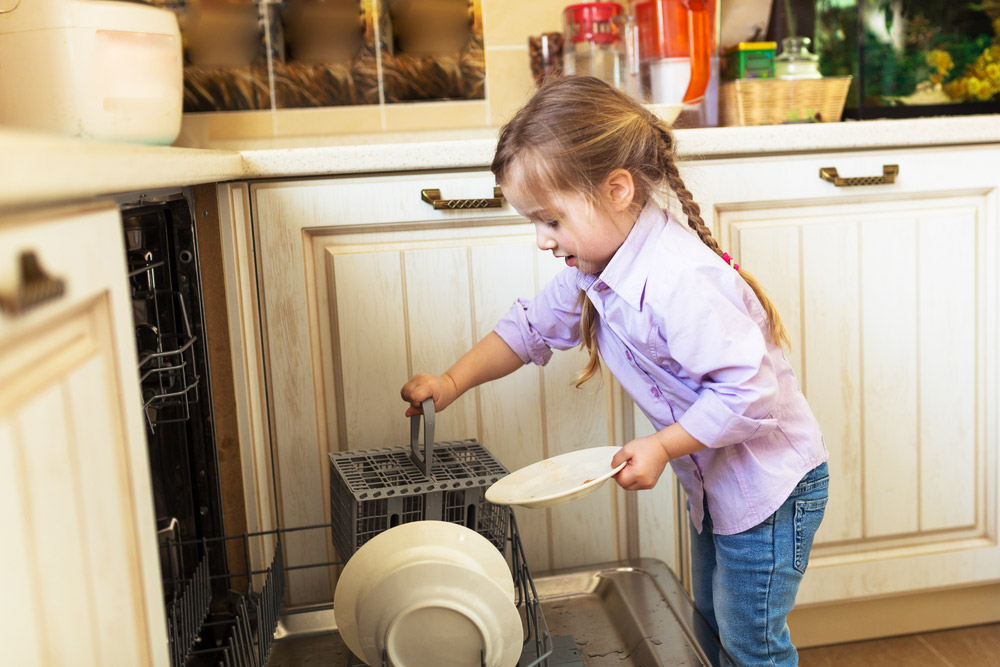Written by Caitlin Schille
Most of us can easily recall the days of childhood chores. Maybe your family had a chore chart or chore wheel. Maybe chores were used as a form of punishment—in my family, the threat of weeding the ivy growing over the rock wall in our backyard was enough to correct any behavior. Or maybe your parents gave you a little more autonomy over the cleanliness of your bedroom. Whatever your experience, the facts speak for themselves—chores are good for kids.
These days, it seems that many parents prioritize homework and extracurricular activities and other “enrichment” activities over traditional chores, overlooking that chores and other household duties are equally enriching experiences for children’s growth and development. Sure, we’re all grateful that the days of children working 14 hour days in factories are over— that’s clearly an exploitation of children. But having children learn to work and to enjoy work by helping out with family chores and yardwork is an excellent way to raise good children.
While children may grumble about doing their chores, it’s quite beneficial for them in the long run. In fact, according to the Center for Parenting Education, “research indicates that those children who do have a set of chores have higher self-esteem, are more responsible, and are better able to deal with frustration and delay gratification, all of which contribute to greater success in school.” Wow! Talk about everything a parent hopes their child becomes. In an age where academic achievement is a huge priority for parents and children, the simple task of giving children a daily set of chores may allow them to pull ahead of their peers.
The research on the impact of children having chores to do goes even further. Marty Rossman, a researcher at the University of Mississippi, stated that “…involving children in household tasks at an early age can have a positive impact later in life….the best predictor of young adults’ success in their mid-20-‘s was that they participated in household tasks when they were three or four.” Consider all the other things that we think have an impact on the success of people in their mid-20’s—did they go to college, did they grow up in a good neighborhood, did they have stable home lives, etc. As it turns out, the best predictor of success is something parents have more control over than they think.
Unfortunately, despite the enormous benefits of daily chores for children, the percentage of children who help with daily household tasks seems to be dwindling. A survey by Braun Research indicated that 82 percent of adults stated that they had chores when they were kids, but these same adults reported that only 28 percent of them had their own children do chores. It’s up to you to change the trend! Start small by having children make their beds each morning and keep their rooms tidy. Ask for help with smaller tasks such as sweeping the kitchen or taking out the trash, and these small tasks will build the habit of performing daily chores. Teach children to learn to enjoy work- they’ll be working for the majority of their lives! Model this behavior to your children by refraining from complaining about your own household tasks, by having a good attitude about your own chores, and by finding ways to make chores fun, like turning up your favorite songs.
Sources: centerforparentingeducation.org, washingtontimes.com
A Chore For Every Age
2-3: Throw things away in the garbage
4-5: Put away silverware
6-7: Put wet clothes from the washer into the dryer
8-9: Vacuum
10-12: Clean out the car
13+: Clean the tub/shower




No Comment